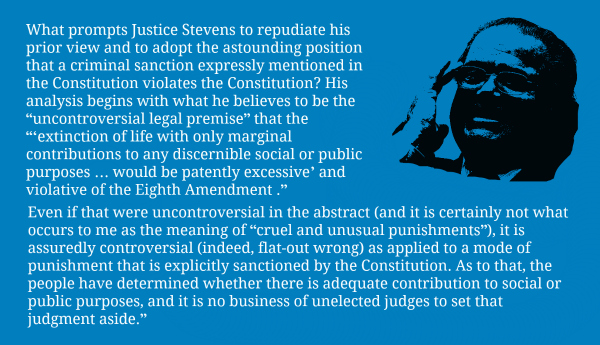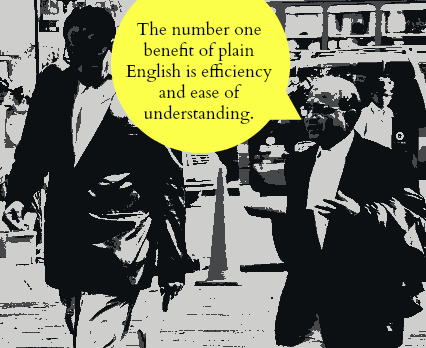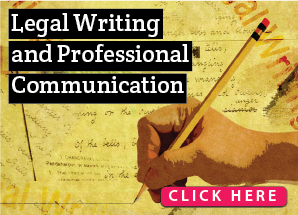 One of the most enduring objections to the use of plain English is that it would ‘dumb down’ writing, or at the very least, make it incredibly boring. This objection is understandable when you consider the ways in which we usually use the word ‘plain’. If food tastes ‘plain’, or your outfit is described as ‘plain’, well, that’s usually not a compliment. When it comes to writing, however, the use of plain language can be a very good thing indeed.
One of the most enduring objections to the use of plain English is that it would ‘dumb down’ writing, or at the very least, make it incredibly boring. This objection is understandable when you consider the ways in which we usually use the word ‘plain’. If food tastes ‘plain’, or your outfit is described as ‘plain’, well, that’s usually not a compliment. When it comes to writing, however, the use of plain language can be a very good thing indeed.
To illustrate, let me take you on a scattered journey, through some of my favourite examples of excellent plain English writing, both in the legal world and outside.
For me, one of the joys of living in India has been discovering the vast range of Indian authors writing in English. They have given me insights into the country, its people, and its history, that I would never have otherwise had. In that vein, how can one go past A Suitable Boy? That sweeping epic somehow managed to examine the minutiae of a ghazal performance and the tragedy of communal riots with the same deft hand, and with language as simple and powerful as this: 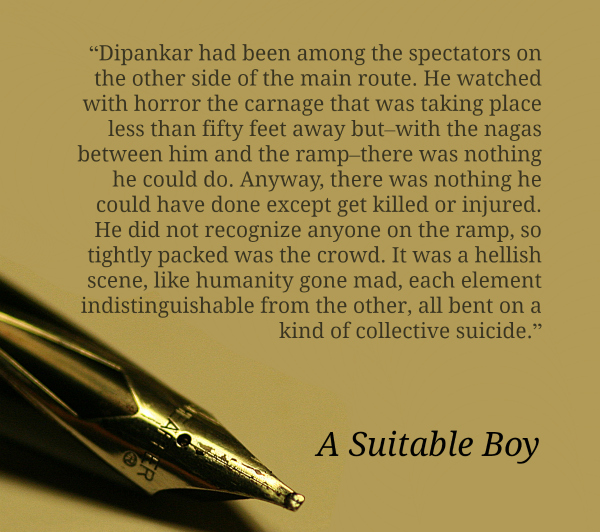
Another obvious example of great Indian writing comes from the nation’s most famous lawyer, Gandhi ji himself. His speeches and writings show, again and again, how deceptively simple statements can wield great power. 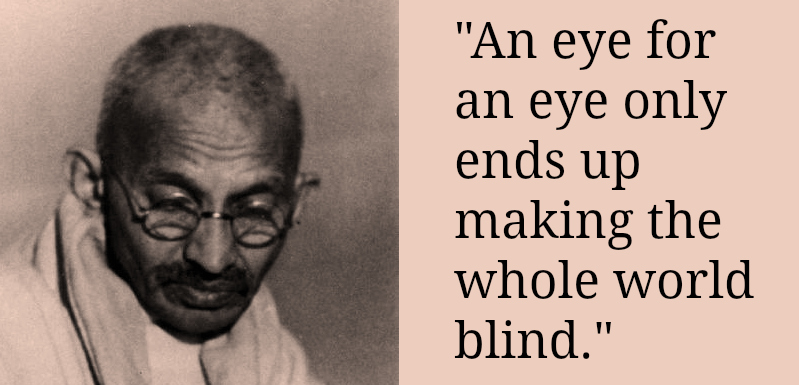 If we keep travelling down the path of great leaders, we can turn to examples such as Martin Luther King Jr., whose famous “I Have a Dream” speech is rightly renowned as a masterpiece of rhetoric.
If we keep travelling down the path of great leaders, we can turn to examples such as Martin Luther King Jr., whose famous “I Have a Dream” speech is rightly renowned as a masterpiece of rhetoric.
Activism and calls for change are, of course, fertile ground for stirring rhetoric. But what of the slightly more ordinary, more everyday? Again, examples are all around, and often only as far away as a newspaper column or magazine article. Renowned academic Upendra Baxi, for example, has not only published countless books and articles, but has written columns in the Indian Express.
And if we delve into different jurisdictions around the world, we can see that the plain language movement is being embraced in many places. In California, the Judicial Council has adopted award-winning, plain language jury instructions. When a judge is talking to a jury about the reliability of witnesses, instead of saying “Failure of recollection is common. Innocent misrecollection is not uncommon.” – a statement that actually involves a triple negative – he or she should say, “People often forget things or make mistakes in what they remember.” So simple, it’s almost a Homer Simpson “d’oh” moment, right?
Believe it or not, there are also many judges who prepare judgments of elegance and simplicity. Famous examples include Lord Denning, of the House of Lords, and Justice Scalia, of the Supreme Court of the United States. Whilst poles apart in philosophy and approach to the law, many of their judgments display a unique gift for prose—whether you agree with their decisions or not.
Justice Scalia’s style is eminently readable, and demonstrates his decision-making process lucidly. We can see this in his reply to Justice Stevens in the case of Baze v. Rees, a 2008 case about the constitutionality of the death penalty in the U.S.A.
Lord Denning often starts his judgments by setting the scene, and continues in that vein throughout—an example of how storytelling can be such a powerful tool for a writer. 
And with that rather lovely vision of a village cricket ground in the evening light, I’ll stop these wanderings. Safe to say that these examples are merely drops in the ocean of all the great writing and oratory that has been done in plain language. I hope you are now even more inspired to keep reading and writing!
(Tennille Duffy is part of the faculty at myLaw.net.)

